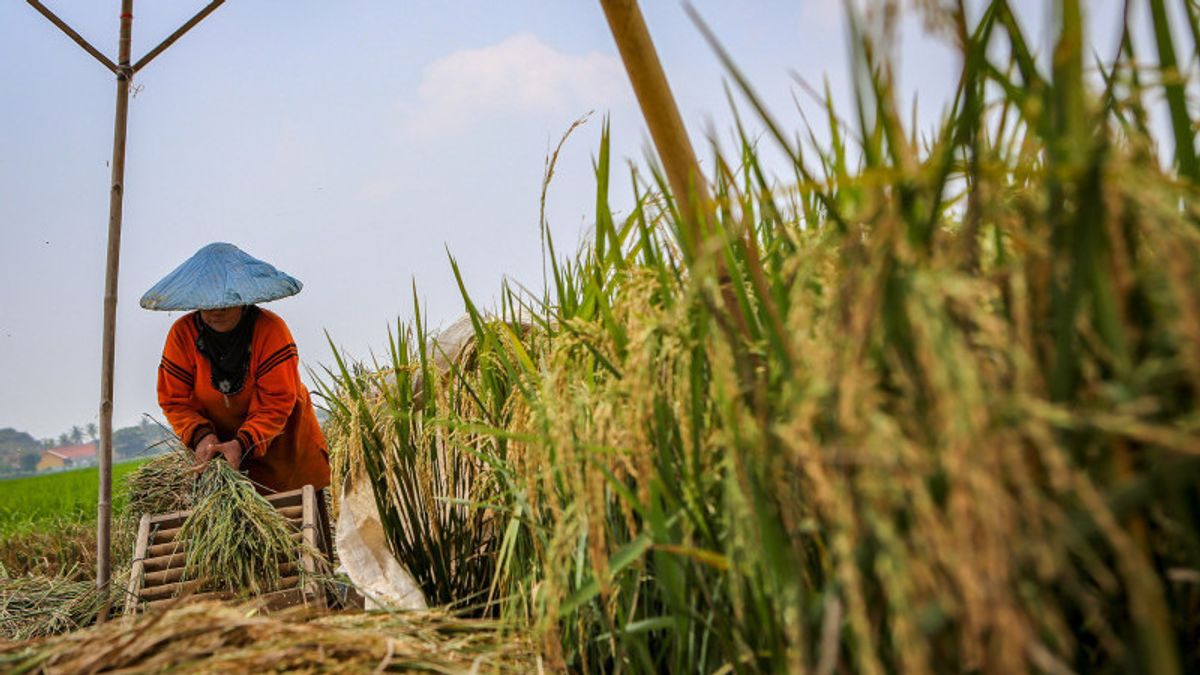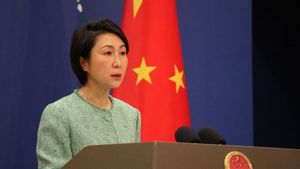JAKARTA - The Center for Indonesian Policy Studies (CIPS) Research Institute said that the continuity between food policy and food trade policy can minimize the impact of global uncertainty on fluctuations in food prices in the country.
"The current fluctuations in food prices in the country are not only influenced by factors that exist in our agricultural sector, but are also influenced by global factors because now everything is interconnected. For this reason, the policies taken need to be comprehensive and pay attention to the interests of all parties," he said. Head of Research Center for Indonesian Policy Studies (CIPS) Felippa Ann Amanta in an official statement in Jakarta, Tuesday.
According to Felippa, the government needs to continue to focus on policies that are oriented towards increasing domestic food productivity, such as increasing intensification, opening farmers' access to quality agricultural inputs, and opening up investment opportunities in the agricultural sector so that technology transfer and modernization occur.
In addition, he continued, the government also needs to maintain its commitment to international trade, not to implement protectionist policies and reduce non-tariff barriers that can affect price stability, and the adequacy of food stocks in the market.
Felippa believes that international trade needs to be carried out while carrying out policies that focus on increasing domestic food productivity.
Agricultural modernization and technology transfer, he said, would also have a positive impact on farmers and welfare, which is expected to make production costs more efficient and improve the quality of the food produced.
CIPS states that international food trade must continue to prevent food crises.
Indonesia's steps to stop the export of crude palm oil (CPO) and India's steps to stop wheat exports are said to be counterproductive to this goal, especially if they inspire other countries to limit exports of their respective commodities.
According to Felippa, ideally trade policies need to be more open and not protectionist, especially in responding to the impact of the pandemic. He said that all countries need to be connected in terms of food trade in order to minimize the occurrence of a food crisis, which may have started with climate change.
"Especially in the midst of rising food prices like this. Furthermore, if other countries follow the steps of Indonesia and India, then all will lack food, including Indonesia itself which still needs imports for a number of food commodities," he said.
Felippa said food supplies need to be maintained to ensure people's access to food, especially those with low incomes.
Gradual price increases will greatly affect the purchasing power and food consumption choices of this group, which in the long run can lead to malnutrition.
In addition, Felippa believes that other policies such as the increase in fuel prices and basic electricity tariffs will also affect people's purchasing power.
"This is where the availability of stocks plays an important role in maintaining people's affordability to food," he said.
According to him, a number of interventions by the government, for example through social assistance, will have an impact.
Felippa emphasized that maintaining food sufficiency and price stability is a must in any situation, especially to support economic recovery.
The English, Chinese, Japanese, Arabic, and French versions are automatically generated by the AI. So there may still be inaccuracies in translating, please always see Indonesian as our main language. (system supported by DigitalSiber.id)








